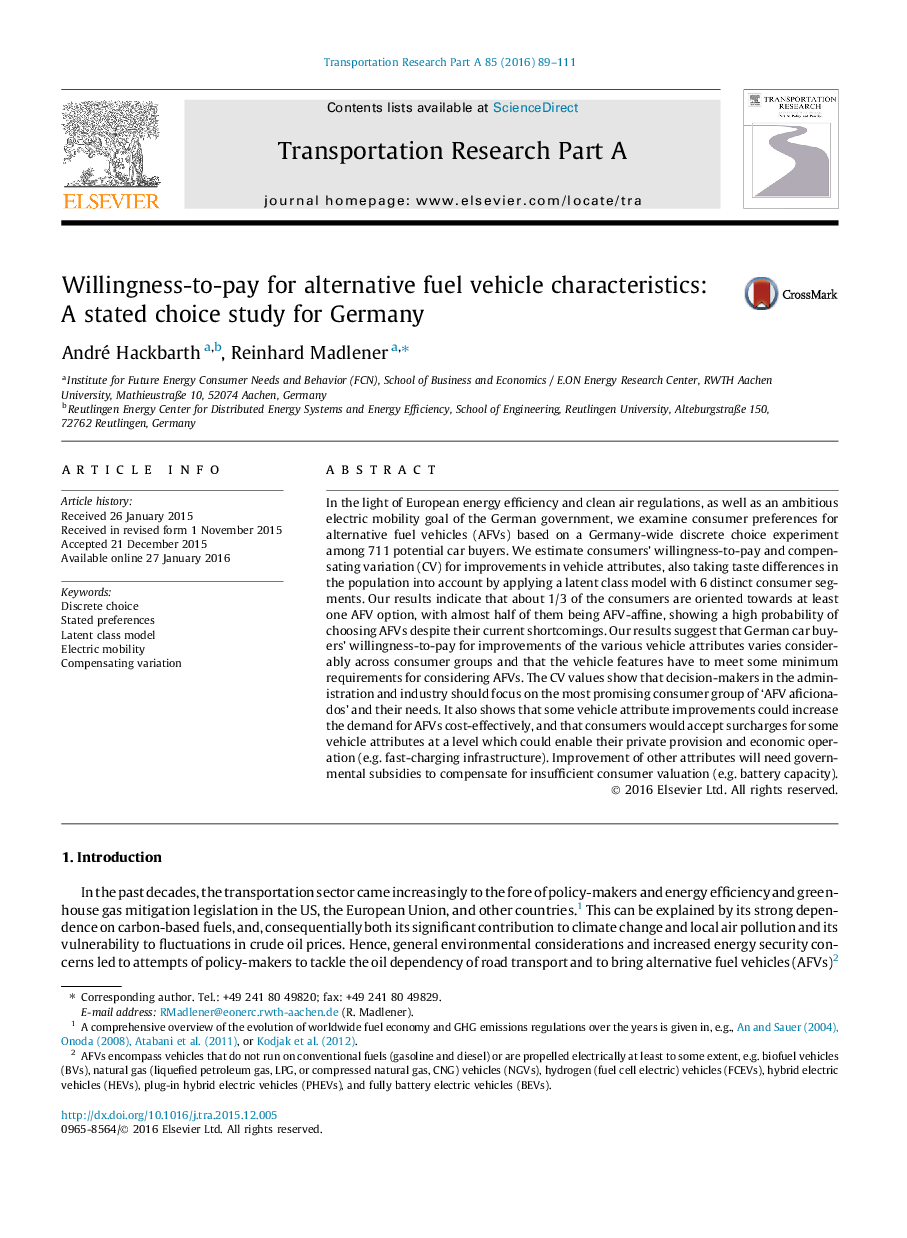| Article ID | Journal | Published Year | Pages | File Type |
|---|---|---|---|---|
| 311125 | Transportation Research Part A: Policy and Practice | 2016 | 23 Pages |
•We did a Germany-wide discrete choice experiment among 711 (potential) car buyers.•36% of the respondents are not averse to alternative fuel vehicle (AFV) concepts.•WTP for attribute improvements varies widely among the 6 consumer segments studied.•Vehicle features have to reach some minimum requirements for consideration of AFVs.•Economic provision and operation of a fast-charging infrastructure seems possible.
In the light of European energy efficiency and clean air regulations, as well as an ambitious electric mobility goal of the German government, we examine consumer preferences for alternative fuel vehicles (AFVs) based on a Germany-wide discrete choice experiment among 711 potential car buyers. We estimate consumers’ willingness-to-pay and compensating variation (CV) for improvements in vehicle attributes, also taking taste differences in the population into account by applying a latent class model with 6 distinct consumer segments. Our results indicate that about 1/3 of the consumers are oriented towards at least one AFV option, with almost half of them being AFV-affine, showing a high probability of choosing AFVs despite their current shortcomings. Our results suggest that German car buyers’ willingness-to-pay for improvements of the various vehicle attributes varies considerably across consumer groups and that the vehicle features have to meet some minimum requirements for considering AFVs. The CV values show that decision-makers in the administration and industry should focus on the most promising consumer group of ‘AFV aficionados’ and their needs. It also shows that some vehicle attribute improvements could increase the demand for AFVs cost-effectively, and that consumers would accept surcharges for some vehicle attributes at a level which could enable their private provision and economic operation (e.g. fast-charging infrastructure). Improvement of other attributes will need governmental subsidies to compensate for insufficient consumer valuation (e.g. battery capacity).
